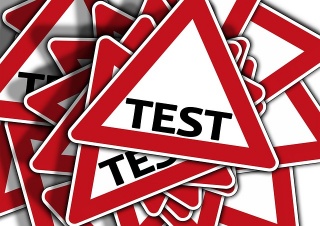The questions which follow provide a basic knowledge test of selected concepts covered in this learning pathway:
The Happy Workforce.
The questions published at the end of each learning pathway are re-used for the knowledge test for learners interested in earning a digital badge or certificate of participation for the Leading and Managing People (PMAN102) micro-course. Please consult the Certify participation page for more information.
Indicate whether the following statements are true or false:
- To motivate employees, goal-setting theory suggests goals should be serious, meaningful, accountable, relatable, and timed.
- TRUE
- No. Goals should be specific, measurable, achievable, realistic, and timely.
- FALSE
- Motivation, ability, and environment are all major influences over employee performance.
- TRUE
- FALSE
- No. These are all major influences.
- Performance appraisals, as a manager and/or employee, provide opportunities for motivation.
- TRUE
- FALSE
- No. Giving and receiving effective feedback is useful for both managers and employees.
- According to Daniel Pink in this PMAN 102 micro-course, extrinsic motivators are more important than intrinsic ones for employees working on creative conceptual problems with undefined rules.
- TRUE
- No. Intrinsic motivators are more important than extrinsic ones for this type of 21sr century work.
- FALSE
- Correct Intrinsic motivators are more important than extrinsic ones for this type of 21sr century work.
Multiple choice questions
- Which THREE factors are considered motivators that are intrinsic to a job? (Select all that apply - there are three correct answers)
- Interesting work
- ’’’Yes’’’ This contributes to job satisfaction.
- Achievement
- Security
- ’’’Incorrect’’’ This is not a major extrinsic factor.
- Challenging work
- According to the Zappos case study you read about in this PMAN 102 micro-course, which three of the following are encouraged by the company? (Select all that apply - there are three correct answers)
- Personal connections among employees
- No deadlines
- ’’’Incorrect’’’ Deadlines are sometimes unavoidable.
- Attractive benefits
- Freedom
- Which ONE of the following is NOT one of Maslow’s hierarchy of needs? (Select one answer)
- Power
- ’’’Yes’’’. Power is not a need in Maslow’s hierarchy.
- Physiological
- ’’’Incorrect’’’ This is one of Maslow’s needs.
- Esteem
- ’’’Incorrect’’’ This is one of Maslow’s needs.
- Self-actualization
- ’’’Incorrect’’’ This is one of Maslow’s needs.
- According to Douglas McClelland’s Acquired Needs Theory, which TWO of the following do all individuals possess a need for? (Select all that apply - there are two correct answers)
- need for affiliation
- need for power
- need for equity
- ’’’Incorrect’’’ According to McClelland, employees have a need for achievement, affiliation and power.
- need for autonomy
- ’’’Incorrect’’’ According to McClelland, the third need is for achievement. According to McClelland, employees have a need for achievement, affiliation and power.
